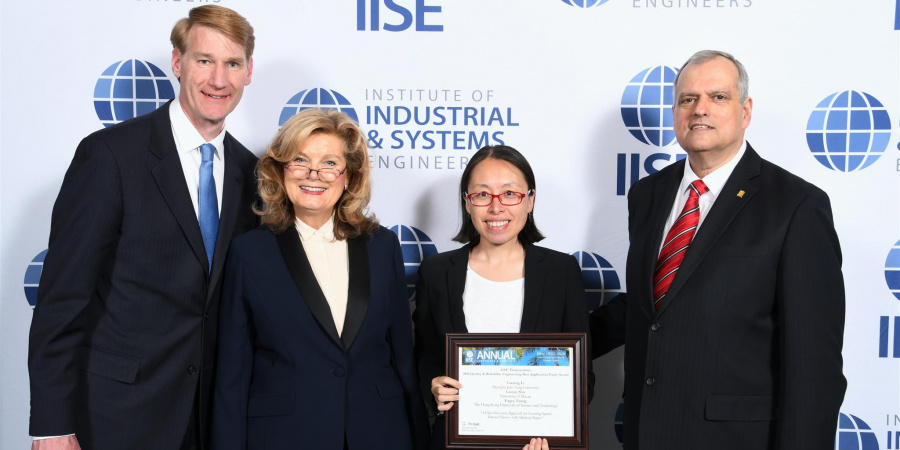Prof Fugee Tsung and HKUST Alumni Won IISE Transactions Quality & Reliability Engineering Best Application Paper Award
Prof Fugee TSUNG, Industrial Engineering and Decision Analytics (IEDA), and two IEDA PhD alumni Prof Yanting LI (2008) and Prof Lianjie SHU (2002) received the IISE Transactions 2018 Quality & Reliability Engineering Best Application Paper Award for their paper on “A False Discovery Approach for Scanning Spatial Disease Clusters with Arbitrary Shapes”. The Institute of Industrial and Systems Engineers (IISE), formerly the Institute of Industrial Engineers (IIE), is the largest industrial engineering professional organization in the world. Their paper was selected by an examining committee from all papers published from July 1, 2016 to June 30, 2017 (issues 48:7 to 49:6) in the IISE Transactions, a flagship journal of the Institute.
Identifying unusual events that are spatially scattered is a challenging problem that is commonly seen in a large variety of applications, including geographic disease surveillance, agriculture pest surveillance, astronomy, ecology, geography, sociology, public health monitoring, etc. For example, an epidemiologist is often interested in assessing the outbreak of a disease and analyzing whether it is infectious or dependent on any spatial environmental factor.
The spatial scan statistic is one of the main tools for testing the presence of clusters in a geographical region. The recently proposed Fast Subset Scan (FSS) method represents an important extension, as it is computationally efficient and enables detection of clusters with arbitrary shapes. Aimed at automatically and simultaneously detecting multiple clusters of any shapes, their paper explores the False Discovery (FD) approach originated from multiple hypothesis testing. They show that the FD approach can provide a higher detection power and better identification capability than the standard scan and FSS methods on average.
Their paper looks into the spatial clustering of disease in public health. In particular, it aims to find the spatial regions where the incidence of disease is higher than expected.
Prof Yanting Li is currently an Associate Professor in the Department of Industrial Engineering and Management at the Shanghai Jiao Tong University, while Prof Lianjie Shu is a Professor in the Faculty of Business Administration at the University of Macau.
Related link:

